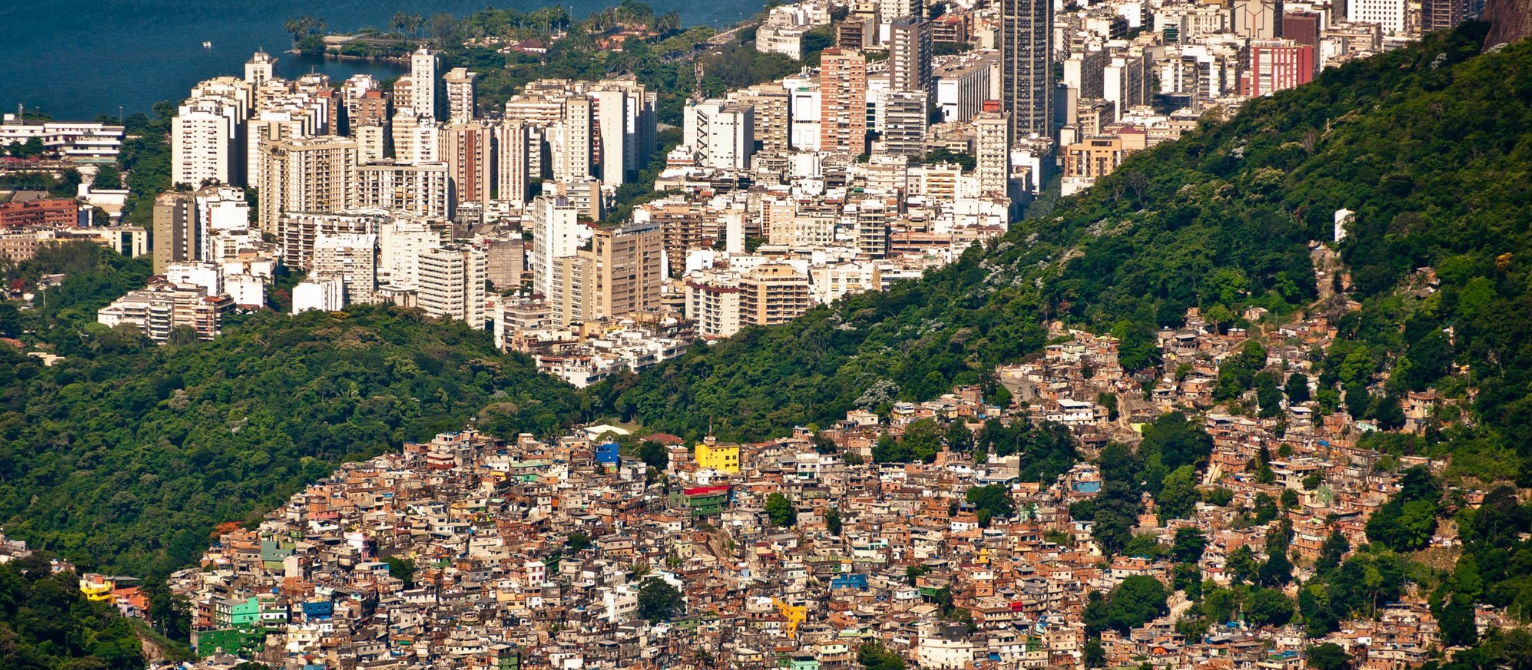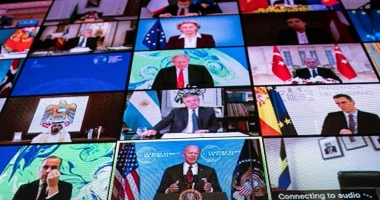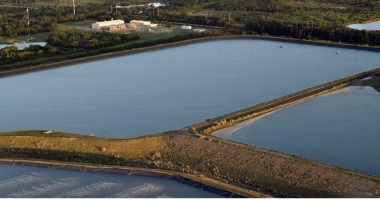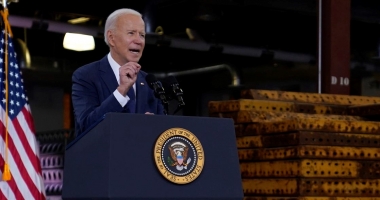Climate, Health and Equity Brief
Stunning disparities and declining mental health
April 16, 2021
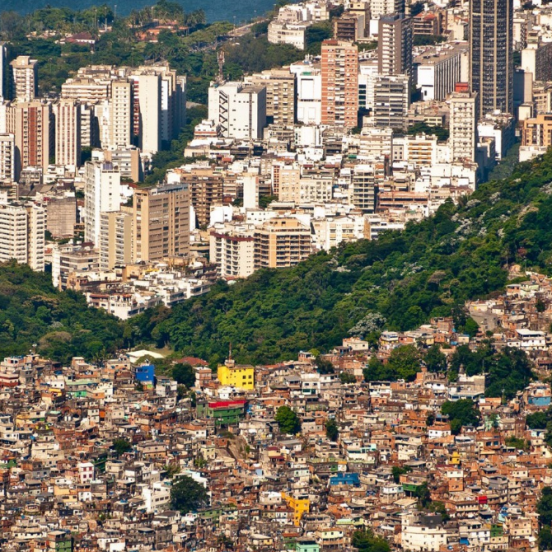
The Climate, Health & Equity Brief is GMMB’s take on the week’s news on the current impacts of climate change. If you haven’t subscribed yet, you can do so by clicking here.
Hot Topic: Rich vs. poor. New research out this week reveals the disproportionate role of the world’s rich in exacerbating the climate crisis. A report exploring the link between income levels and carbon footprints made the stunning finding that the top one percent of earners globally (52 million people) produces double the carbon emissions of the poorest 50 percent (4 billion people). Put another way, one rich person has the approximate carbon footprint of 154 poor people, a fact that is largely due to carbon-intensive lifestyle choices among the wealthy such as air travel, heavy automobiles, large, energy-inefficient homes and frequent beef and dairy consumption.
Unfortunately, the people least likely to exacerbate the climate crisis are the most likely to suffer its worst impacts—while the industries that fuel these disparities are often the loudest voices against a low-carbon transition. In just one example, a new NYU report found that since 2000, meat and dairy companies have spent more than $200 million lobbying against climate policies—including the Clean Air Act—and funding research specifically designed to mislead the public about their environmental impact.
While polluting industries spend vast sums to protect their interests in the face of an undeniable climate crisis, news this week continues to show that humans are simply expected to play the hand they are dealt. Low-income communities face housing policies that vastly increase their exposure to toxic air pollution. Twenty states have already or are currently attempting to criminalize peaceful fossil fuel protests, marginalizing the very communities whose land and health are most directly impacted. And a recent study of 1200 young adults 14-24 found that 83 percent are worried about the health of the planet, and 75 percent think that fact is impacting their mental health.
Moving forward, economic and public health disparities fueled by climate change will truly be addressed only when government and corporate leaders embrace an equitable and transparent transition to a low-carbon future.
— Matt & Traci, GMMB
Equity
A new report revealed that the wealthiest one percent of the world’s population produces double the combined carbon emissions of the poorest 50 percent due to over-consumption and carbon-intensive lifestyle choices. (BBC)
A recent report synthesizing data from more than 300 previous studies found that due to housing discrimination and redlining, communities of color—especially poor, Black communities—are exposed to 50 percent more particulate matter pollution from industrial activity compared to the overall U.S. population. (Gizmodo)
Twenty states across the U.S. have already or are currently attempting to criminalize peaceful protests at natural pipelines and other energy infrastructure. (InsideClimate News)
California’s State Legislature defeated a bill that would have banned fracking and required buffer zones between drilling sites and residential areas—a major setback for the more than seven million mostly non-white and low-income Californians living within one mile of oil and gas operations in the state. (Los Angeles Times, Grist)
Our racial inequality crisis is intertwined with our climate crisis. If we don’t work on both, we will succeed at neither.
-Marine biologist Ayana Elizabeth Johnson
Health
A new Blue Shield of California survey on environmental concerns among 1,200 youth aged 14-24 found that more than 8 out of 10 are worried about the health of planet, and large majorities believe climate change is having an adverse effect on their mental health (75 percent) and their physical health (69 percent). (AP News)
A new report found that the U.S. healthcare industry’s carbon footprint is on track to triple by 2050 unless immediate action is taken to shrink emissions from its operations and supply chain. (Reuters)
Following the state’s third-driest winter on record, scientists at California’s only wildfire research center warn that the state’s vegetation is exceptionally dry for this time of year and could lead to intense and rapid-spreading wildfires in the coming months. (SF Gate)
Politics & Economy
A new study revealed that big meat and dairy companies—which alone are responsible for 14 percent of global greenhouse gas emissions—have contributed millions of dollars to undercut climate policies and fund misleading research that weakens the link between animal agriculture and climate change. (Vox)
As part of his preliminary FY22 budget released last Friday, President Biden proposed $14 billion in spending for climate initiatives, including $1.4 billion to combat industrial pollution in marginalized communities, $691 million for international climate adaptation aid and $500 million for clean energy research. (Reuters)
A new analysis revealed that in 2020, the U.S. National Flood Insurance Program paid out more than $1 billion for the sixth year in a row—with homeowners across Alabama, Florida and Louisiana accounting for half of all claims due to last year’s record-setting Atlantic hurricane season. (E&E News)
A new investigation revealed that the conservative American Legislative Exchange Council (ALEC) has formed a working group to undermine President Biden’s climate agenda by pushing to nullify recent climate-focused executive orders and increase powers for state legislatures. (Grist)
Investment company BlackRock’s new exchange traded fund (ETF)—which focuses on companies best positioned for a clean-energy transition—attracted $1.25 billion in first-day inflows last week, making it the biggest ETF launch in history. (Nasdaq)
Action
In an open letter to President Biden, more than 300 leaders from major U.S. corporations called for a new Paris Agreement goal committing to a 50-percent cut in carbon dioxide, methane and other planet-warming emissions by 2030. (The New York Times)
A new climate law signed by Rhode Island Governor Daniel McKee (D) commits the state to net-zero emissions by 2050 and requires its Executive Climate Change Coordinating Council to provide an updated carbon reduction plan every five years. (AP News)
Technology giant Apple announced a $200 million investment to fund global carbon removal projects, with a goal of removing one million metric tons of carbon dioxide annually from the atmosphere through 2030. (The Verge)
Kicker
Curious to see the actual effects of climate change visualized? Click through Google Earth’s new Timelapse feature to see the human impact on the planet over the last three decades.

)

